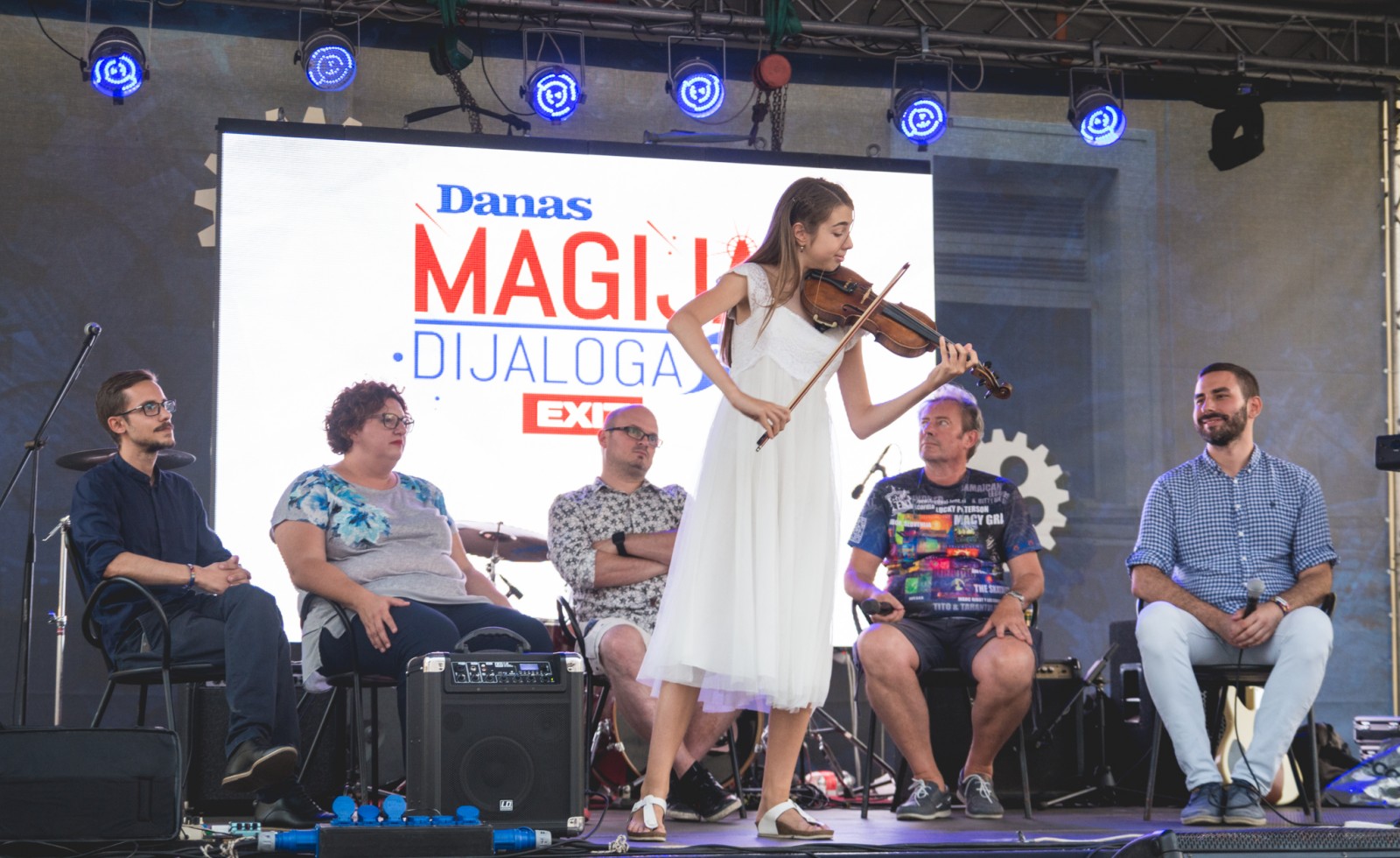The experience of teams that have already implemented the European Capital of Culture projects shows that expectations, mostly those of the citizens, are great, but the experiences also show that all projects initiated, more or less successfully, processes of positive changes in their cities through the European Capital of Culture project. This was discussed last night, at the panel discussion entitled ‘Managing Expectations, Challenges, and Legacy in European Capital of Culture’, organised by Danas daily with the support of the ‘Novi Sad 2021 – European Capital of Culture’ at the Exit festival.
Participants of the panel stressed that the European Capital of Culture project is very complex and simultaneously the most successful cultural project on the territory of Europe in the last 30 years, because it is focused not only on cultural development, but also on social and economic development of the city. In a very short time period, five to six years, needed to develop the European Capital of Culture project in a city, citizens can feel the difference and benefits. The previous capitals of culture have clear results, as is the case with Košice 2013 or Maribor 2012, while the teams from Rijeka 2020 and Timișoara 2021 have clear goals in terms of what they want to leave as a legacy of the European Capital of Culture title.
Vuk Radulović, Head of the Department for International Relations of the ‘Novi Sad 2021’ Foundation and the moderator of the panel, stressed that the advice from the colleagues for the first year is to focus on strategy and organisational structures, as well as to engage in developing capacities for implementations of projects, and to think about projects in the following years. These processes are mostly invisible for the citizens, but are crucial for a successful implementation of the project.
– Special recommendation and at the same time praise for our team that could be heard during the panel, is that the implementation of the ‘Novi Sad 2021’ project should include wide range of people, especially young people, which we have already started implementing through our programmes of dialogue and participation. At the same time, it was stressed that this is the project for all of us, all citizens, which we can be successfully implemented only if we work together, so it cannot be expected that the Foundation works alone – Mr Radulović said and emphasised that the coordination and contribution of all cultural subjects and citizens is of crucial importance for this joint project.
The ‘Novi Sad 2021’ Foundation, which initiated the meeting of teams of former and future capitals of culture from the region in order to exchange experiences and examples of good and bad practices during the process of implementation of this important title, invited Emina Višnić, CEO of the ‘Rijeka 2020’ project, Vladimir Rukavina, from the ‘Maribor 2012’ team, Christian Potiron from ‘Košice 2013’, and Tibor Novak, member of the ‘Timișoara 2021’ project to be the panellists.
The panellists stressed that the ‘nonmaterial’ aspects that remain in the city after the title are important that the artistic projects, positive economic, tourist, social and other effects. At the end of the Panel, Emina Višnić, CEO of the ‘Rijeka 2020’ project said that after 2020 in Rijeka she would like to hear not that ‘they’ successfully implemented the project, but that ‘all of us’ did our best.



